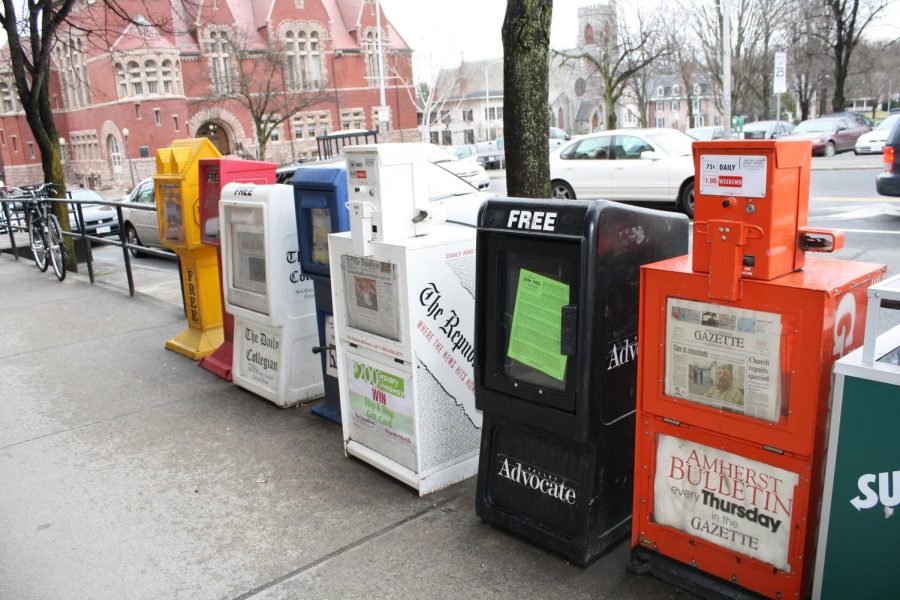Tired of skipping assigned readings and resorting to incognito windows, I set out this week to write about the lack of access to local news at the University of Massachusetts, thinking, falsely, that the University offers only a four-year academic pass to the New York Times.
I’m delighted to find out I was wrong.
UMass does, in fact, provide free access to thousands of magazines and newspapers, including the Boston Globe, Springfield Republican and Daily Hampshire Gazette. The University’s archives and databases are one thing I’ve been consistently impressed by during my time here, and I think more people should know about it.
In addition to the widely advertised New York Times pass, UMass’ library database provide access to local newspapers via ProQuest, Massachusetts NewsBank and PressReader. Who knew I could have been reading an unofficial guide to Fortnite in Swedish this whole time!
Sure, uploads are delayed by a few weeks and you lose the photos and layout of a traditional newspaper, but that’s ok. The information is all there. It’s not a perfect system, but it’s something.
When doing research, especially on local communities, news archives are the best place to start. Nothing gives you a sense of a place and time quite like a collection of front pages.
Massachusetts Open Meeting Law requires that public bodies keep meeting minutes, a written record of all discussions and decisions, and make them available to the public. There is an outline of the actions of your government, but who wants to read it? I sure don’t. It’s far easier and faster to digest the same information through the local news, which can similarly recap meetings and add any context necessary to stay informed.
Local officials have the most direct effect on their constituents, and local news is vital to holding them accountable. But small-town newspapers are dying, and they’re taking democracy with them.
A 2019 PEN America report found that citizens are less likely to vote, stay informed and run for office as local journalism declines. Government officials are less effective, and able to get away with more, as “ghost newsrooms” are unable to provide original reporting. The problem is most pronounced in rural and low-income communities, as well as communities of color, which were already underserved by local legacy media.
“Because newspapers still provide the majority of original local reporting in communities, their evisceration robs the American public of trusted sources of critical information about health, education, elections, and other pressing local issues,” the report found.
The Pew Research Center found in 2019 that Americans are largely unaware of the financial crisis facing local news. Seventy-one percent of those surveyed in 2018 said they believe local news media does well financially, and only 14 percent said they had paid for local news in the past year.
The survey also revealed that 47 percent of Americans receive local news that mostly covers another area, like a nearby city, rather than their community directly.
I understand UMass’ push behind its New York Times pass for students. The Times is one of the country’s most prominent newspapers and giving students free access is an important way to remove financial barriers to class readings and research, but the same enthusiasm should be there for its local news archives.
For students looking to connect with the Pioneer Valley community outside of UMass’ campus, local papers are a great place to start. Support local news first by reading it, and take advantage of your opportunity as a student to do so for free.
The next time you have a project, paper or uneventful afternoon, take a look at the local news databases our University provides, or venture up to the archives on the 25th floor of the Du Bois Library. You might be surprised by what you find.
Catherine Hurley can be reached at [email protected] and followed on Twitter @cath_hurley.



















